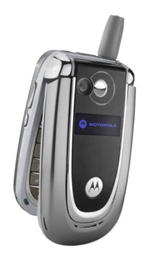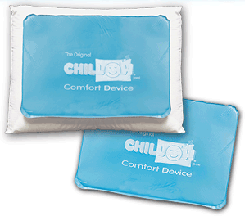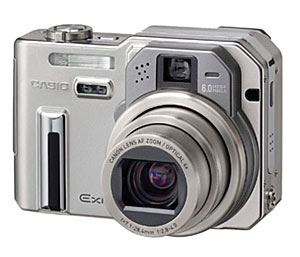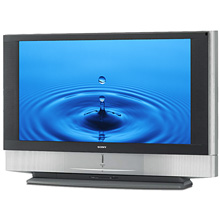Marathon toys
One thing I do enjoy about taking up new sports, even ones as painful as marathon training, is examining new gadgets. I thought that a simple sport like running would be immune to gadget excess, and for the most part it is, but not completely. For the runner without a budget: The only real gadget I've used is the Timex Bodylink System (I'd be remiss if I didn't mention that Bean bought me a stick of Bodyglide, and that's been a lifesaver also; it sounds vaguely kinky but protects against distinctively unsexy running maladies). The Timex Bodylink System consists of a watch, a GPS unit you wear on your upper arm, and a heart rate strap. When it works (which is when the GPS unit has a decent line of sight to the sky), it's great. It provides your mile pace and total distance covered, and it can be set to record mile splits automatically. My first month and a half of marathon training, I didn't run a long run in the same city twice, so having a device just track my distance allowed me to just focus on running and enjoying the views.
The only real gadget I've used is the Timex Bodylink System (I'd be remiss if I didn't mention that Bean bought me a stick of Bodyglide, and that's been a lifesaver also; it sounds vaguely kinky but protects against distinctively unsexy running maladies). The Timex Bodylink System consists of a watch, a GPS unit you wear on your upper arm, and a heart rate strap. When it works (which is when the GPS unit has a decent line of sight to the sky), it's great. It provides your mile pace and total distance covered, and it can be set to record mile splits automatically. My first month and a half of marathon training, I didn't run a long run in the same city twice, so having a device just track my distance allowed me to just focus on running and enjoying the views.
I ran in Seattle around Greenlake a couple times, then to the base of Golden Gate Bridge from Bean's place in Nob Hill, then through Stanford campus (including a pass by The Dish), then along Manhattan Beach near my sister Karen's new apartment, and finally all over Central Park in Manhattan. I love the view of the city skyline at night from the north end of the Reservoir.
The variety and often stunning views really helped, because otherwise I find running to be slow and painful. If I were Kenyan gliding across the land at a five minute mile pace, I'm sure I'd feel differently. Others speak of runner's high and of how they can't wait to get a run in. I just don't feel that way about the sport. In fact, with the marathon just a month away, I'm realizing that marathon refers to the training, which seems interminable. My knees ache, and this tendon that runs under the big bone on my ankle throbs all the time. Laura said she had tendinitis there also, and hearing that helped, because I wasn't sure there were any tendons in that part of my foot. When I run, it seems like everyone and their mother and their grandmother blows past me. So frustrating for someone prone to overcompetitiveness.
Can you tell I'm dragging a bit?
I am looking forward to the marathon itself. I'm ready for that day to be here.
- Experimental injections of PPARdelta - turns mice into marathon mice
- Hypoxic tent - oxygen deprivation increases body's red blood cell count, though it's unlikely to impress the ladies
- Adidas 1 running shoe - computer chip continually adjusts the shoes cushioning
- Curved running track - strengthens running muscles by forcing you to run fast enough so that centrifugal force keeps you on the track.
- Vibration plate machine - strengthens the bones. There are several such machines on the market.
- Avacore CoreControl powered by Rapid Thermal eXchange (RTX) technology - keep your core body temperature low even on the hottest of days.
 The only real gadget I've used is the Timex Bodylink System (I'd be remiss if I didn't mention that Bean bought me a stick of Bodyglide, and that's been a lifesaver also; it sounds vaguely kinky but protects against distinctively unsexy running maladies). The Timex Bodylink System consists of a watch, a GPS unit you wear on your upper arm, and a heart rate strap. When it works (which is when the GPS unit has a decent line of sight to the sky), it's great. It provides your mile pace and total distance covered, and it can be set to record mile splits automatically. My first month and a half of marathon training, I didn't run a long run in the same city twice, so having a device just track my distance allowed me to just focus on running and enjoying the views.
The only real gadget I've used is the Timex Bodylink System (I'd be remiss if I didn't mention that Bean bought me a stick of Bodyglide, and that's been a lifesaver also; it sounds vaguely kinky but protects against distinctively unsexy running maladies). The Timex Bodylink System consists of a watch, a GPS unit you wear on your upper arm, and a heart rate strap. When it works (which is when the GPS unit has a decent line of sight to the sky), it's great. It provides your mile pace and total distance covered, and it can be set to record mile splits automatically. My first month and a half of marathon training, I didn't run a long run in the same city twice, so having a device just track my distance allowed me to just focus on running and enjoying the views.I ran in Seattle around Greenlake a couple times, then to the base of Golden Gate Bridge from Bean's place in Nob Hill, then through Stanford campus (including a pass by The Dish), then along Manhattan Beach near my sister Karen's new apartment, and finally all over Central Park in Manhattan. I love the view of the city skyline at night from the north end of the Reservoir.
The variety and often stunning views really helped, because otherwise I find running to be slow and painful. If I were Kenyan gliding across the land at a five minute mile pace, I'm sure I'd feel differently. Others speak of runner's high and of how they can't wait to get a run in. I just don't feel that way about the sport. In fact, with the marathon just a month away, I'm realizing that marathon refers to the training, which seems interminable. My knees ache, and this tendon that runs under the big bone on my ankle throbs all the time. Laura said she had tendinitis there also, and hearing that helped, because I wasn't sure there were any tendons in that part of my foot. When I run, it seems like everyone and their mother and their grandmother blows past me. So frustrating for someone prone to overcompetitiveness.
Can you tell I'm dragging a bit?
I am looking forward to the marathon itself. I'm ready for that day to be here.






